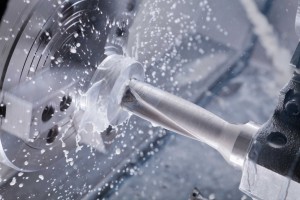
Often, we find ourselves in talks with clients who can’t decide whether to use plastic machining or plastic injection molding to create their custom plastic parts.
The decision is complex, but answering a few questions can clarify which plastic manufacturing process is best for your project. In this blog, we’ll address the factors affecting your decision to use plastic injection molding vs. precision plastic machining.
Plastic Injection Mold or Plastic Machining: What’s the Difference?
In plastic injection molding, solid plastic pellets are heated to their melting point and injected into a cavity, called a “mold.” The pellets then cool in the shape of the mold.
In precision plastic machining, a larger block of solid plastic is whittled down to the desired dimensions using advanced machinery.
Both injection molding and machining are viable manufacturing processes, so how to choose between them?
- How many custom plastic parts do you need?
Plastic injection molding is less expensive per part than plastic machining, but the upfront cost of the mold is steep: anywhere from a few thousand dollars to a few hundred thousand if it’s very complex.As a result, it makes sense to machine plastic parts if you only need a few hundred or less. Even though machining costs about 25 times more than injection molding, you’ll avoid the pricey upfront cost of the mold and save anyway.On the other hand, if you’re expecting thousands of jobs, you’ll likely save money by choosing plastic injection molding. You should consult an expert to determine the exact quantity that would make injection molding financially sensible for your project.
- Will you need to change the design of your custom plastic part?
It’s financially inefficient to invest in an expensive mold if the design of your custom plastic part will change in the near future.If you plan to alter your design, it’s best to machine your parts. You’ll not only avoid spending thousands on a mold you can no longer use; you’ll benefit from the ability to change the design at any point.Plastic machining is known for being the more flexible manufacturing process.
- How precise do you need your custom plastic parts to be?
The more closely you need your plastic parts to hold to your design specifications, the more likely you should machine them for your desired results.While injection molding is fairly precise—within .005 inches of specifications—machining yields parts within .001 inches of specifications.Your decision ultimately depends on if looser tolerances are acceptable for the nature of your product. Clients in the telecommunications, aerospace and medical equipment industries often choose plastic machining for its superior precision.Other industries can and should opt for the benefits of plastic injection molding if minor inconsistencies make no difference.
- How perfect do you need your plastic parts to be?
Plastic injection molding can produce slight cosmetic imperfections that may not be acceptable. For example, the gates of the mold create a slight flaw upon removal, as do the knockout pins used to remove the part, which leave small depressions. Perfect surface smoothness can also be a problem for custom parts created via plastic injection molding.Plastic machining is likely preferable if your custom plastic parts cannot display even minor cosmetic defects.
- Do you need to use an advanced specialty plastic?
Finally, your selection of plastic materials is generally more limited when you plan on using injection molding. While rubbers and other flexible materials are ideal for molding, many harder, high-performance specialty plastics can only be machined.If you have a specific advanced plastic in mind, it’s possible machining is your only option.
Plastic Machining or Plastic Injection Molding: Conclusion
In conclusion, consider plastic machining if you require the:
- Closest possible tolerances
- Fastest turnaround times
- Greatest cost efficiency for low quantities
- Greatest flexibility of design
- No cosmetic imperfections (ejector marks, parting lines, etc.)
- Greatest selection of advanced specialty plastics
Furthermore, if you plan to use plastic injection molding to create thousands or even millions of parts, you may still want to use plastic machining for testing prototypes of your design before investing in your mold.
Reading Plastic Machining & Fabrication: Your Industry Experts
Let’s talk solutions. We’re known for our industry knowledge, ability to hold close tolerances, and excellent customer service throughout the entire machining process. We’ve worked with a wide range of clients, both private and government, on projects spanning multiple industries. We also require no manufacturer’s threshold, so you can turn to us for plastic machining projects of any size.
Start the conversation at (610)-926-3245 or email . We look forward to steering you toward the most profitable solution.
